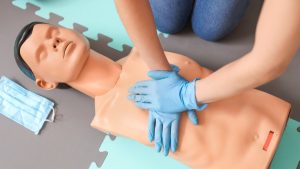Articles / Bowel Cancer Screening: Who, When, How?

These are activities that expand general practice knowledge, skills and attitudes, related to your scope of practice.
These are activities that require reflection on feedback about your work.
These are activities that use your work data to ensure quality results.
These are activities that expand general practice knowledge, skills and attitudes, related to your scope of practice.
These are activities that require reflection on feedback about your work.
These are activities that use your work data to ensure quality results.
New NHMRC guidelines put age and family history up front and centre in determining who should be screened for bowel cancer with colonoscopy and who needs iFOBT.
It has been known for some time that family history can influence the risk of developing bowel cancer, Australia’s second most common cause of cancer death. But it is also known that specific, identified genetic mutations causing conditions such as Lynch syndrome or familial adenomatous polyposis are rare, accounting for less than 5% of all bowel cancers diagnosed. At most, the researchers say, this only explains half of the reasons why family history is a risk factor for bowel cancer.
“The remainder of the observed increases in familial risk could be due in part to mutations in yet to be discovered colorectal cancer susceptibility genes, polygenic factors such as single-nucleotide polymorphisms, or dietary and other lifestyle factors shared by family members,” the guideline authors said in the Medical Journal of Australia.

Fracture Prevention and Osteoporosis Management After Menopause

Ophthalmology Update: New Treatments for Old Conditions

Testosterone for Men – Common Myths and Recent Development

Conversation Strategies for Unfunded Vaccinations



Yes, if the referral process involves meaningful collaboration with GPs
Yes
No
Listen to expert interviews.
Click to open in a new tab
Browse the latest articles from Healthed.
Once you confirm you’ve read this article you can complete a Patient Case Review to earn 0.5 hours CPD in the Reviewing Performance (RP) category.
Select ‘Confirm & learn‘ when you have read this article in its entirety and you will be taken to begin your Patient Case Review.